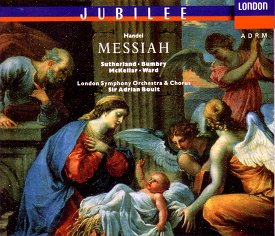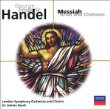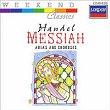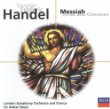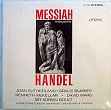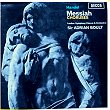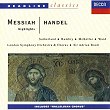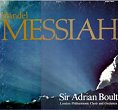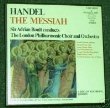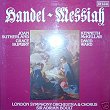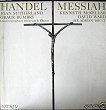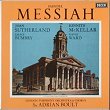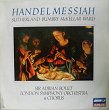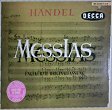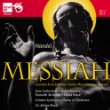
|
SITE RATING: 7/10 SITE
REVIEW: Sir Adrian
Boult's second recording of Messiah
on the Decca London label, and his first in
stereo is about on par with his earlier, mono recording.
Instead of the London Philharmonic
Orchestra and Chorus, here he uses the
London Symphony Orchestra and Chorus, but his
conducting style has changed very little in
the six years between the two recordings -
Boult uses the grand, romantic tradition, and
his soloists, ranging from an in-her-prime
Joan Sutherland to the richly-voiced Grace
Brumby, the underwhelming tenor Kenneth
McKellar and a similarly anemic bass, David
Ward, whose melismas are unfocused, and whose
tessatura I didn't find pleasing.
Boult's style of conducting Messiah
in slow, grand phrases gives the oratorio a
heightened sense of pathos during the bleaker
passages, but also infuses the more joyful
choruses with a reigning-in effect which only
occasionally breaks out, such as the strongly
declamatory "Let Us Break Their Bonds".
The recording is strongly ambient, with
the chorus receiving a generally warmer sound
than the drier orchestra, but the blend is
very good, the performance generally very
pleasing, and an overall good reading.
Should you choose this recording over
other 1950s-era Messiahs? I didn't
find this Messiah
as compelling as others of the era, but
personal preference aside, this is a perfectly
serviceable recording. As of this
writing it's out of print on CD, but receives
a very fine in-demand CD-R release through Archiv
records which includes all notes and printed
labels.
UPDATE: On November 16, 2010, Newton Classics is reissuing this title on a 3-CD set. |
